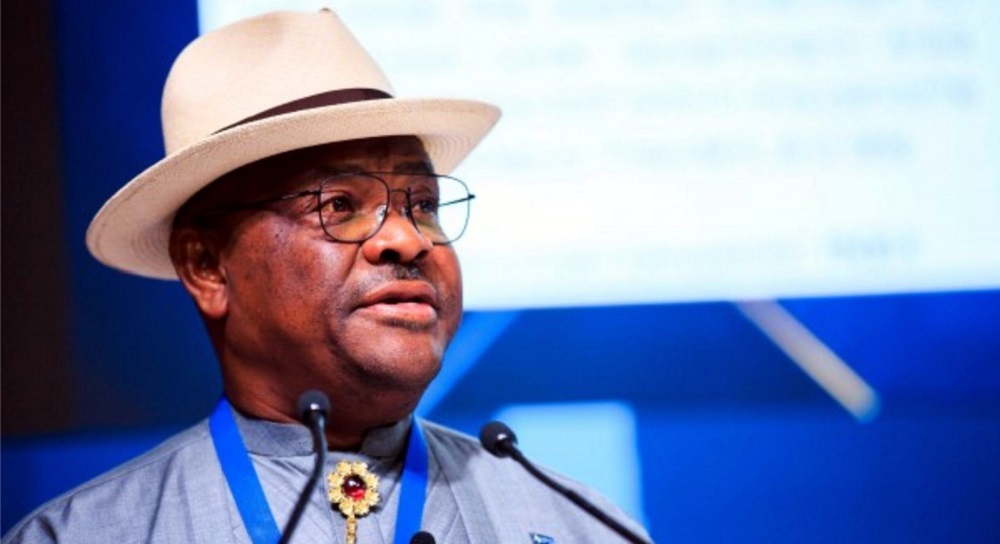News
Kalu Says Insecurity, Inadequate Infrastructure Stalling Nigeria’s Mining Sector Growth

By Gloria Ikibah
The Deputy Speaker of the House of Representatives, Rep. Benjamin Kalu has said that insecurity, inadequate infrastructure, and lack of skilled labour have continued to act as bottlenecks hampering the growth of Nigeria’s mining sector.
Kalu stated this at a Public Policy Dialogue on Nigeria’s Minerals and Mining Legislation, organized by House Committee on Solid Minerals, on Monday in Abuja.
According to him, the nation’s vast mineral resources have remained largely untapped, and undeservedly overshadowed by our too much reliance on oil.
Kalu added that despite boasting over 40 commercially viable minerals, the mining sector contributes a mere 0.3 percent to the country’s GDP, which he said is unacceptable and urged all hands to be on deck to turn the tide.
The Deputy Speaker who made reference to a Bill he co-sponsored with the Chairman, House of Representatives Committee on Solid Mineral, Hon. Jonathan Gbefwi titled Nigerian Minerals and Mining Act (Amendment) Bill as well as eight other mining bills, said the bills when passed into law will represent a turning point for the nation’s mineral wealth.
He further noted that governments hold many of the levers to deal with the great challenges, adding however, that businesses have the innovation, technology, and talents to deliver the needed solutions.
Kalu also opined that the governing philosophy in the mining sector in Nigeria should henceforth be approached with a private-sector-led lens, stressing that it is through this crucial partnership that the true potential of Nigeria’s mining sector can be unlocked.
He said: “This public policy dialogue is engineered to create the appropriate right of way for the necessary adjustments and policymaking creativity that is required to optimize the promising prospects of Nigeria’s mining sector. Today, I stand before you not only as Deputy Speaker of the House of Representatives but also as a co-sponsor of the HB.751: Nigerian Minerals and Mining Act (Amendment) Bill so ably sponsored by Hon. Jonathan Gbefwi. This legislation if passed will represent a turning point for our nation’s mineral wealth.
“There are indications of a renewed vigor in our mining industry, fueled by a collective will to diversify our economy, create jobs, and unlock the immense potential that lies beneath our soil. The 2016-2025 mining industry development roadmap, aiming to increase the sector’s GDP contribution to 3% by 2025, is already showing progress. Projects like the Segilola Gold Project in Osun state governed by a private-sector-led lens are injecting millions of dollars into our economy and attracting much-needed investment.
“They are not just amendments; they are a comprehensive reform package designed to address these challenges and propel our mining sector into the future. Here’s what these bills aim to achieve: Enhanced security: By fostering collaboration between mining companies, communities, and security agencies, we can create a safer environment for investment and development. Infrastructure development: We are committed to investing in critical infrastructure like roads, railways, and power, making mine operations more efficient and cost-effective. Skilled workforce development: We are building partnerships with educational institutions and industry leaders to equip Nigerians with the skills they need to thrive in this sector. Streamlined regulation: The new legislation will simplify bureaucratic processes, reduce red tape, and create a more transparent and predictable regulatory environment.
I urge all stakeholders– government, businesses, communities, and civil society– to join hands and work together to make this vision a reality. Let us leverage the power of partnerships, innovation, and technology to unlock the true potential of our mineral wealth. The time for action is now”.
“To demonstrate this concisely, in the 3rd quarter of 2023, the Segilola Gold mine in Osun state, Nigeria’s first industrial-scale gold mine posted $118 million in revenue for its owners, Thor Explorations Limited after reporting $71.7 million in earnings before interest, taxes, depreciation, and amortization (EBITDA) in 2022 according to its publicly available financial statements for 2022 and 2023. Initiatives like the simplification of licensing and competitive royalty regimes attract global players like Thor Explorations, showcasing the potential for an industrial-scale mining sector. However, challenges remain. Insecurity, inadequate infrastructure, and a lack of skilled labor continue to act as bottlenecks. This is where the HB.751 and eight other mining-related bills currently under consideration come in.
News
Po!n, betting sites recorded 162m Nigerian visitors in June – Report

A report by global data and business intelligence platform, StatiSense, has revealed that more than 162 million Nigerians visited porn and betting websites in June 2024.
According to the platform’s most recent data, which lists the top ten websites that Nigerians saw on their mobile devices in June, a sizable percentage of this traffic visited websites with gambling and pornographic content.
A post on StatiSense’s official X page revealed that a variety of search engines, social media apps, and betting platforms were among the most popular websites.
Notably, two pornographic websites, Xvideos and Xnxx, came in second and sixth place respectively with a total of 80.18 million visits.
In addition, Nigerian mobile users visited sporting websites 176.83 million times. Of these, 83.1 million visits were allocated to sports betting sites Sportybet and Bet9ja, which secured third and fourth places on the list.
Google and Facebook were also among the sites that featured prominently in the report.
News
Reps hail Wike, Tamuno over AICL’s improved revenue, infrastructure

Members of the House of Representatives’ Committee on FCT, led by Hon. Aliyu Muktar Betara have applauded the Minister of Federal Capital Territory (FCT), Nyesom Wike over ongoing infrastructural development projects across the nation’s capital city.
The lawmakers who spoke during an interactive session with the Group Managing Director of Abuja Investment Company Limited (AICL), Dr. Maureen Tamuno applauded her ingenuity towards improved revenue generation since her assumption of office.
While presenting her scorecard and strategy adopted in the turnaround of Abuja Investment Company Limited to the Committee, Dr. Tamuno disclosed that AICL only manages the district markets, not the entire markets across the territory.
According to her, Wuse Markets is owned 90 percent by the individuals who bought the shops while AICL owns 10 percent.
“For example, Wuse Market is owned 90 percent by the owners, we own 10 percent. What Abuja Management does for Wuse market is to manage the facility there through the toll taking which they do collect on our behalf and then they manage the facilities, they manage the refuse collections and they also work with the market association.”
News
Tinubu serious in solving economic crisis — Wike

Minister of Federal Capital Territory (FCT), Nyesom Wike on Friday said President Bola Ahmed Tinubu is serious in solving the economic crisis in the country.
Wike gave the assurance during the inspection of the ongoing construction of the 7.3 kilometers Gaba/Tokulo road in Bwari Area Council.
He pleaded with Abuja residents to give the present administration the needed support to deliver the dividends of democracy.
Addressing reporters during the inspection visit, the FCT Minister expressed satisfaction with the speed and quality of work on the road project and assured that it will be adequately funded to ensure its timely completion by December this year.
The Minister who revealed that the project was 40 percent complete, said about 70 percent of the contractual sum has been paid to the contractor by the FCT Administration and expressed confidence in the capacity of the contractor to deliver the project within the agreed schedule.
Wike further disclosed that the Gaba/Tokulo road, when completed, will not only enhance transportation in the rural parts of the FCT, but will also improve food security in the nation’s capital by providing access to the farmlands, as well as access to the markets.
He also stressed the commitment of the FCT Administration to providing infrastructure in the FCT Area Councils, in line with the Renewed Hope Agenda of President Bola Ahmed Tinubu.
Wike said: “So many people have thought that we are only concentrating in the city. Yesterday, we were in Saburi, today we are in Bwari. Tomorrow, we will be in Kuje, so that people will understand that while we are doing in the city, we are also carrying out development in the satellite towns and the rural areas because by the Renewed Hope Agenda, development is not only to be concentrated within the city but also to take to the rural areas in order to improve the economy.
“Here is an agrarian area; without this road, how are they going to move their goods? And this is part of the problems we have in terms of food insecurity. People are talking about shortages of food, but if we don’t have means of transportation, that is also a problem.
“We are trying to solve that problem of transportation for farmers to be able to go and bring whatever they have produced for people to consume or to buy”.
Wike, while thanking the people of Bwari for their support for the government, also reiterated that President Tinubu was committed to addressing the economic problems of the country and called for their continued support.
He said: “We thank the people of Bwari and we want to also let them know that the government of President Tinubu is serious about solving the economic crisis we have. All we urge Nigerians is just to be patient.
-

 News22 hours ago
News22 hours agoNationwide protest: ‘Airport Is Filled Up, Govs, Senators, Reps, Ministers Traveling Abroad’ — Fayose
-

 News15 hours ago
News15 hours agoLP blows hot gives Akpabio 72hrs to declare Senator Onyewuchi’s seat cacant for dumping party for APC
-

 News14 hours ago
News14 hours agoJust in: DSS moves against organisers of protest, freezes bank accounts as group set to file legal action against UBA
-

 Opinion2 hours ago
Opinion2 hours agoFuel Challenge In Nigeria: Modular refineries to the rescue?
-

 Politics14 hours ago
Politics14 hours agoBreaking! LP crisis takes fresh twist as ‘new’ chairman emergesl
-

 News15 hours ago
News15 hours agoSEE Dollar to naira exchange rate today at black market
-

 News2 hours ago
News2 hours agoAraraume mourns Iwuanyanwu, says Nigeria has lost a genuine patriot
-

 News10 hours ago
News10 hours agoFinally, IGP approves hunger protests across Nigeria








